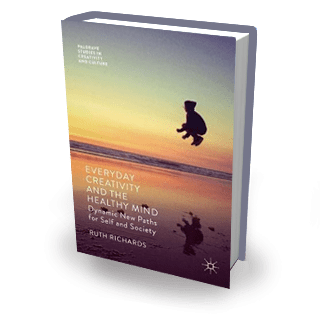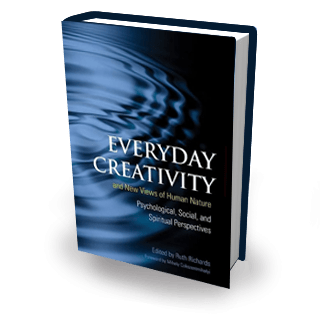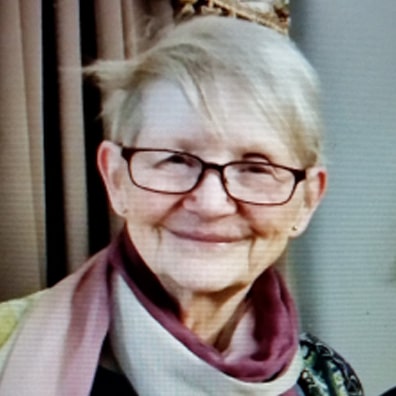Let us look again! Here we “turn the camera around” from the creative product, to look at who is doing this creating—creative person—along with creative process, and the press of the environment (the 4 Ps of Creativity). Aren’t we creating each day – unknowingly? After all, we have hunches, intuitions, adaptive capabilities – all fundamental to human evolution.
How can living more creatively and consciously impact our lives? What if we knew we could find new presence, insight, surprise, awe, and amazement, as well as a deeper knowing of self, each other and the
world? For many, living more creatively can generate new potential for interconnection, intimacy, empathy, and caring.
In a world of “change and surprise,” one can find new insights from chaos and complexity theory and consciousness studies. Consider, for instance, the Butterfly Effect, sudden epiphanies, falling in love! Or emergence in group formation, or the structure of the Internet. One sees how creative living might enhance outer awareness, inner vision, creative coping and resilience. Indeed our creativity can help us not only to survive, but also to discover what we are surviving for.
The talk includes occasional Q and A and activities—no experience necessary!
This event gives you:
1.) Worldview. A “feel” for chaos and complexity theory. We move more meaningfully into the flux of our dynamic, holistic, and interconnected world—and perhaps toward a new worldview.
2.) Self-in-world. Lived experience of our own dynamic “process-selves,” with a new feel for “self-in-world” and “aliveness,” while being part of a larger unity.
3.) Five words. Broader meaning for five everyday words—sudden, emergent, balancing, alive, and interdependent.
4.) Aha! Ways to see the sudden creative “Aha! Moment” in a chaos and complexity frame—and maybe even enhance one’s own creative Ahas! at the same time.
5.) Ongoing creating. Factors in our “ongoing creating” (vs. feeling stuck) and what it can mean for our state of consciousness.
6.) Deeper knowing. Surprising types of deeper understanding and empathetic knowing we can refine (with both organic and inorganic phenomena, and from very small to very large).
7.) A fractal cosmos. Importance of beauty, awe, and the fractal forms of nature to our health, wellbeing, wonder and humility, and our place in a larger and sacred cosmos.
Other books by Ruth Richards, M.D., Ph.D.



and her authored Everyday Creativity and the Healthy Mind: Dynamic New Paths for Self and Society, for Palgrave Macmillan (2018; paperback, 2019) won a Silver Nautilus Award (“Better Books for a Better World”). Of her new co-edited (Schuldberg, Richards, Guisinger, 2022) book for Oxford U. Press, Chaos and Nonlinear Psychology: Keys to Creativity in Mind and Life. David Pincus, Past Pres. of the Society for Chaos Theory (in Psychology and the Life Sciences) said “Compared to other books on chaos and complexity in the last 30 years, this book sits at a unique and highly accessible crossroads.” Dr. Richards asks us to dare to open to our creativity and to the mysteries of life—to find the health and joy hiding there, perhaps behind a screen of mindless and conventional assumptions. Let us entertain a new Worldview and View of Self-in-World; this may even be our job as humans and our evolutionary path!

